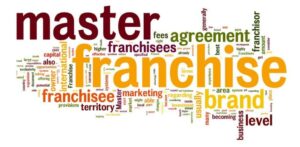Franchising has become an attractive option for aspiring entrepreneurs who want to start their own business with the backing of an established brand. The Philippines has 2,000 local and international franchise brands in the food, retail, and service sectors.
It offers a structured approach to business ownership, reducing some risks associated with starting from scratch. However, buying a franchise has pros and cons, like any business decision.
Before you start investing, it’s really important to get a good grasp of franchise advantages and disadvantages. Knowing these details will help you figure out if franchising fits with your financial goals and business dreams and how much risk you’re comfortable taking.
In this article, let’s examine the franchise pros and cons in depth, helping you make an informed decision that could shape your entrepreneurial journey.
What is Franchising?
Before evaluating the franchise advantages and disadvantages, it’s important to understand franchising. So, what is franchising? A franchise is a business structure where a person (franchisee) acquires the rights to run a business using an established brand (franchisor).
This setup allows franchisees to leverage a proven system, branding, and operational support. The franchisor provides guidelines, marketing strategies, and operational assistance to ensure consistency across all locations.
Franchisees benefit from a built-in customer base, reducing the effort required to establish brand credibility. With the right franchise, entrepreneurs can capitalize on a successful business model while minimizing the risks of starting from scratch.
Advantages of Buying a Franchise

Franchising provides several benefits, making it an appealing business option for many entrepreneurs.
Established Brand Recognition
One of the most significant franchise advantages is instant brand recognition. Instead of building a brand from scratch, franchisees benefit from the credibility and trust the franchisor has already established.
Proven Business Model
A franchise model offers a tested and refined business structure. Franchisors provide standard operating procedures, reducing the trial-and-error phase for new business owners. This can lead to a higher success rate compared to independent startups.
Training and Support
Franchisors offer comprehensive training programs, operational guidance, and marketing support to help franchisees, including those new to the industry, manage their businesses successfully.
Easier Financing Options
Banks and financial institutions are often more willing to provide loans to franchisees due to the lower risk associated with an established brand. Starting an independent business makes it easier to secure funding.
Access to a Network of Franchisees
Being part of a franchise system means you have access to a network of other franchisees who can provide valuable insights and support.
Higher Success Rate
Franchises generally have a higher success rate than independent startups due to the structured support and established systems they offer. Explore franchise opportunities available today.
Disadvantages of Buying a Franchise

While franchising has many advantages, there are also some franchise disadvantages to consider.
High Initial Costs
While franchising offers a safer route to business ownership, the cost can be high. Franchisees must pay an upfront franchise fee and ongoing royalty fees. Franchise cost varies based on the industry and brand.
Limited Autonomy
Franchisees must follow strict guidelines set by the franchisor, leaving little room for creativity and personalization. Any deviation from these guidelines can lead to penalties or even termination of the franchise agreement.
Ongoing Royalty and Marketing Fees
Franchisees face ongoing financial obligations that can significantly affect their overall profitability.
One of the most common costs you’ll come across as a franchisee is paying monthly or yearly royalty fees, which are usually a percentage of your gross sales.
These fees are essential for maintaining the franchise’s brand and ensuring that the franchisee receives continuous support from the franchisor.
Dependence on the Franchisor’s Reputation
The success of a franchisee is closely linked to the overall reputation of the brand. If the franchisor faces negative publicity, it can affect all franchise locations, regardless of how well they perform individually.
Market Saturation and Competition
Some franchises expand aggressively, leading to market saturation. Too many franchise locations in the same area can lead to internal competition, reducing profitability for franchisees.
Risk of Contractual Limitations
Franchise agreements often have strict terms regarding location, operational changes, and even resale. Some contracts may include clauses that make it difficult for a franchisee to exit the business or switch to another brand.
Considering future industry trends? Check out the latest franchise forecast.
Franchise Risk: What You Need to Know

Despite the many franchise advantages, franchising has inherent risks. Here are some critical franchise risks to consider:
- Failure of the Franchisor: If the franchisor goes bankrupt or fails to sustain the brand, franchisees can face serious financial losses.
- Changing Market Trends: Consumer preferences shift, and a franchise that is successful today may not perform well in the future.
- Legal and Regulatory Challenges: Franchising is governed by various laws, and any regulation changes could affect operations and profitability.
Is Buying a Franchise the Right Choice for You?
To decide whether franchising is a good investment, weigh the franchise pros against the franchise cons based on your business goals, financial situation, and risk tolerance.
When Franchising is a Good Choice:
- You prefer a structured business model with clear guidelines.
- You want a recognized brand with existing customers.
- You have the financial resources to cover initial and ongoing costs.
- You appreciate the ongoing support from a franchisor.
When Franchising May Not Be Ideal:
- You want complete creative and operational control over your business.
- You are unwilling to pay ongoing royalties and marketing fees.
- You prefer a business with lower startup costs.
- You are uncomfortable with contractual limitations.
Check out this guide if you want to explore some of the best franchise businesses.
Take the First Step and Buy Your Franchise Today
Franchising is an excellent way to enter the business world with lower risk than starting from scratch. However, it is not a one-size-fits-all solution.
Understanding the franchise’s advantages and disadvantages will help you make an informed decision that aligns with your goals and financial capabilities.
If you’re ready to take the next step toward business ownership, Franchise PH can help you find the perfect opportunity.
Start exploring franchise opportunities now and take control of your future! Contact Franchise PH today to find the right franchise for you.







